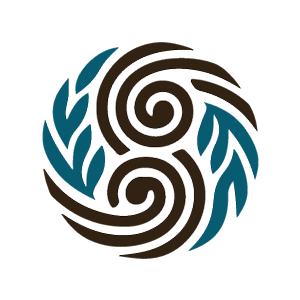In this session, we reflected on the growing group of refugees coming to Europe as a possible target group for permaculture activities.
Why are refugees important?
Refugees are a growing group due to ecological, social, political issues and climate change.
- The western 'dream' is causing instability and refugees' instability in southern countries and as consequence many refugees come to Europe.
- Many refugees come from rural areas to cities as part of global land flight and urbanisation, which leads to rural de-population.
There are two groups of refugees:
- Political immigrants from war zones and religious and gender conflicts. They have less opportunities to return, but in hope of getting official status.
- Economic refugees, often not recognised, so that they are more invisible in in the society. Many of them are illegal and/or homeless.
What are their needs and what are the needs for permaculture teachers working with refugees?
Needs on both sides are possibly:
- a new mindset on both sides for regenerative cultures rather than the destructive American dream;
- skills to deal with multiculturalism, traditional knowledge and trauma awareness;
- dealing with frustration (loss of belief in the Western dream).
Needs of permaculture teachers:
- Training in utilisation of simple vocabulary and teaching in a very concrete way.
- Profound knowledge of all climate zones.
Needs of refugees might be:
- Re-connection with the land and society
- Access to land and job
What strategies might be helpful?
Here is a list of some strategies we came up with:
- Intercultural trainings, anti rascism-, critical-white ness- and anti-discrimination-trainings for permaculturists
- Trainings for dealing with traumata, ancestral grieving ceremonies
- Empowering refugees to marry their traditional knowledge with permaculture and transfer it to their countries of origin
- Intercultural gardens
- Improving refugees' homes and camps with permaculture design
- Give access to land by CSA, crowdfunding, fundraisng etc.
- Inviting native teachers from countries of origin
- Learning by doing rather than transferring mental concepts
- Creation of non-verbal learning tools and materials
- Creating community by eating and music, sharing recipes
- Two way learning, include traditional knowledge
- Connect refugees with the permaculture and ecovillage projects in their countries of origin
- Connect refugees with local currencies as a way to participate in local economy
- Change the dream of the West; do dragon dreaming sessions
- Inner reconnection through Deep Ecology
- Intercultural sharing and heart sharing of life stories through Way of Council
- Create jobs through production of goods (mushrooms, bees, handcrafts etc.)
- Cooperate with EVS, European voluntary services (young refugees, etc.)
Apart from these local strategies other strategies fare needed for empowering people in southern countries to ecosocial self-sufficiency especially in rural areas:
- Support self-organised permaculture activities in the South
- Trainings for resilience in the South
- Support land regeneration and (re-)localisation of economic structures
Examples of good practice:
- Awakening the dreamer courses (www.uptous.com)
- Senegalese ministry of ecovillages: turns 50% of traditional villages into ecovillages (africa.ecovillage.org)
- Permaculture in Kenya (www.otepic.org)
- Denmark, Copenhagen. Bybi project supports bee keeping for homeless (bybi.dk)
- Dutch multicultural urban garden projects with many nationalities (www.dagvandestadslandbouw.nl)
- Permaculture garden growing food for the Rotterdam foodbank: www.voedseltuin.com
- Permaculture included in trainings for resilience in villages in El Salvador(Ishi Cosbi, permaculture teacher Netherlands (www.linkedin.com/pub/ishi-crosby-en-sarah-zee)
- Rostock alternative refugee camp (www.oekohaus-rostock.de)
- Permaculture on national TV: Jeff Lawton projects restoration and reforesting deserts a valley in Jordanie and the Yellow River in China.
- (tegenlicht.vpro.nl/nieuws/2012/april/Geoff-Lawton.html)
- Sepp Holzer, permaculture restoration work in Ecuador and Russland
- www.voedseltuin.com. This is an example of a permaculture garden in Rotterdam, Netherlands, who produces food for the local foodbank. A foodbank produces food for people who have not enough money to buy food. They are also invited to come and help in the garden. There are more of these permaculture projects in a variety of cities in Netherlands.
Article compiled by Sarah Daum from the data gathered by the Open Space table on Refugees on 28/05/2014.
- Log in to post comments
